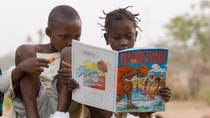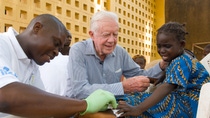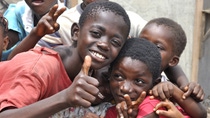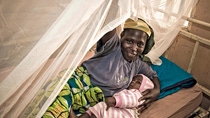Agriculture
Guinea Worm Cases Reach Historic Low
When The Carter Center began its Guinea Worm Eradication Program in 1986, more than 3.5 million cases of Guinea worm disease were estimated to occur annually in 21 countries in Africa and Asia. Since then, infection rates have fallen by more than 99.99 % with only 27 (provisional) cases reported in 2020 in South Sudan, Mali, Chad, Ethiopia and Somalia.

For more than 30 years, the Carter Center has led the international campaign to eradicate Guinea worm disease, working closely with ministries of health and local communities, the U.S. Centers for Disease Control and Prevention, the World Health Organization, UNICEF, the private sector and many others. President Carter, who turned 96 in 2020, says he would like to see Guinea worm eradicated from the globe in his lifetime.
As a result of these efforts, The Carter Center predicts that Guinea worm disease will soon become the second disease in human history, after smallpox, to be completely eradicated and the first to be eradicated without the use of a vaccine or medical treatment.
In support of The Carter Center Guinea Worm Eradication Program, BASF has supplied Abate®, the chemical water treatment that kills the guinea worm larvae, free of charge since 1988 - a contribution worth more than U.S. $4 million. In 2020, more than 10,000 liters of Abate were supplied to the Program.
Achim Reddig, head of BASF's public health business reflected on the role that BASF has played in consigning the crippling Guinea worm disease to history: “This program is a shining example of how to get it right in public health - from involving local governments and developing programs tailored to local needs, to training field workers, every detail is thought through and implemented meticulously. I am proud that our company was able to provide The Carter Center with an important component in their program.”

Collaboration to combat river blindness
In November 2012, BASF further extended its collaboration with The Carter Center to support the fight against river blindness in Ethiopia. In a long-term partnership, BASF has also committed to supply more than 4,500 liters of Abate larvicide to help Uganda eliminate river blindness from within its borders.
River blindness can cause intense itching, skin and eyesight damage, and often blindness. Spread through the bites of small black flies that breed in rapidly flowing waters along fertile riverbanks, the disease has an enormous economic impact, preventing people from working, harvesting crops, receiving an education or taking care of their children.
Rare recognition from The Carter Center
To recognize BASF's contribution, former U.S. President and founder of The Carter Center, Jimmy Carter, awarded BASF with a signed certificate of appreciation for our work in helping to eradicate Guinea worm disease.
Carter expressed his gratitude by saying, “Our remarkable success, is due in major part to the generosity of BASF”. And in a personal film message to all BASF employees, he continued “On behalf of my Carter Center colleagues and about three and a half million former Guinea worm sufferers worldwide, I extend thanks to everyone at BASF.”
Guinea worm disease is a debilitating condition that often temporarily disables its victims. Individuals afflicted with the disease become unable to perform simple, yet essential functions such as tending to farms and caring for children, literally halting everyday productivity throughout the affected villages.
Learn more about Public Health




